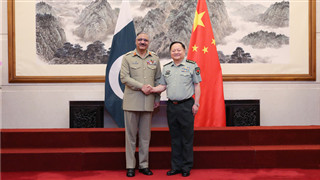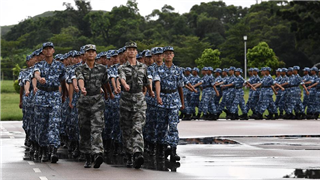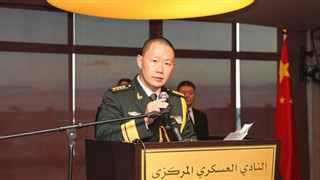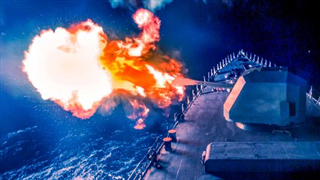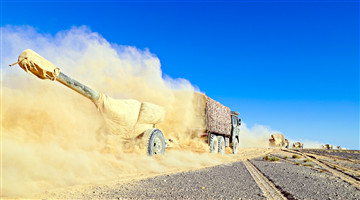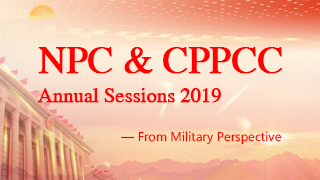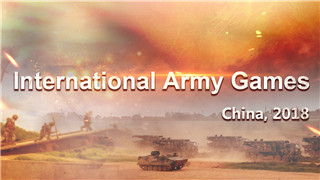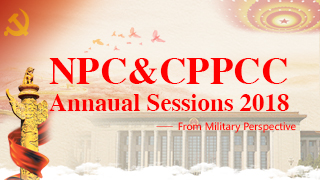By Li Shurui
The Pentagon released the Joint Publication 3-72 Nuclear Operations recently, pointing out that using nuclear weapons could create conditions for decisive results and the restoration of strategic stability. According to the document, the US is gradually losing its advantage because the number of countries with nuclear power is increasing, and the gap in conventional military power is narrowing. Therefore, it is necessary to change the scope of the nuclear weapons’ application in war. The document also explicitly requires that in the event of nuclear strikes, the US military should be able to maintain combat effectiveness, keep fighting in a polluted environment and launch the nuclear counter-attack.
Presently, while the US and Russia have successively suspended the implementation of the Intermediate-Range Nuclear Forces Treaty (INF Treaty), plus the US and Iran are on the verge of breaking out a war, the meaning behind this document is really chilling. Some experts pointed out that this move means that the nuclear strike threshold of the US will be greatly reduced, making nuclear wars even closer to the world.
In fact, this is not the first time that the US lowered the "nuclear threshold." In February last year, the US Department of Defense issued a new version of the Nuclear Posture Review, which expanded the scope of the use of nuclear weapons for the first time. At the same time, the review also claimed that the US should develop more types of nuclear weapons, enrich nuclear strike means, enhance nuclear deterrence, and ensure that its nuclear capabilities are "unmatched." At present, the US Strategic Command is considering reducing the scale of some nuclear weapons so that air-to-air missiles and artillery shells can carry nuclear warheads.
From the release of the new Nuclear Posture Review to the initiation of the withdrawal from the INF Treaty, and the publication of the nuclear warfare guidance document, the Trump administration's intention to improve its nuclear capabilities is very clear. Hong Yuan, a researcher with the Institute of American Studies under the Chinese Academy of Social Sciences, said that these phenomena are not difficult to understand. Lowering the threshold of nuclear weapons’ application is only a continuation of the Cold War mentality. During the Cold War, the US was ready to carry out nuclear wars and devolved the command of nuclear operations to the military level.
In fact, the US maintains a series of "world records" in the field of nuclear weapons. The US is the world's first country to have nuclear weapons, the only one that has used nuclear weapons in actual combat, the country with the largest number of nuclear tests, and the country that has the strongest nuclear arsenal. However, the US asserts eloquently that all adjustments to its nuclear strategy have been forced out. A report released by the US National Intelligence Council in 2012 stated that Russia's nuclear policy had been the use of low-equivalent or tactical nuclear weapons in conventional combats in order to quickly end critical conflicts since 2000.
In addition, events including the escalating tension between the US and Iran and the stalled Korean Peninsula issue also make the US feel "being threatened." Putting the extent to which these "threats" are exaggerated aside, if the US, the world's most powerful nuclear power, feels that it is not safe, does it mean that the other countries have more reasons to develop nuclear weapons to defend themselves? This vicious cycle is likely to trigger a new round of nuclear arms race.
The smoke of the nuclear war has not gone far. The two atomic bombs dropped in Japan by the Americans have made humans see the power of nuclear weapons. The "nuclear winter" theory reminds people of the destructive effects of nuclear wars. Today, the US is still strengthening the nuclear power and reducing the threshold for the use of nuclear weapons. The international community should remain highly vigilant against this move to develop nuclear weapons in the name of "security."
PLA DAILY: US lowered threshold of nuclear strike, triggering external vigilance
- Source
- China Military Online
- Editor
- Xu Yi
- Time
- 2019-07-31 15:59:59
